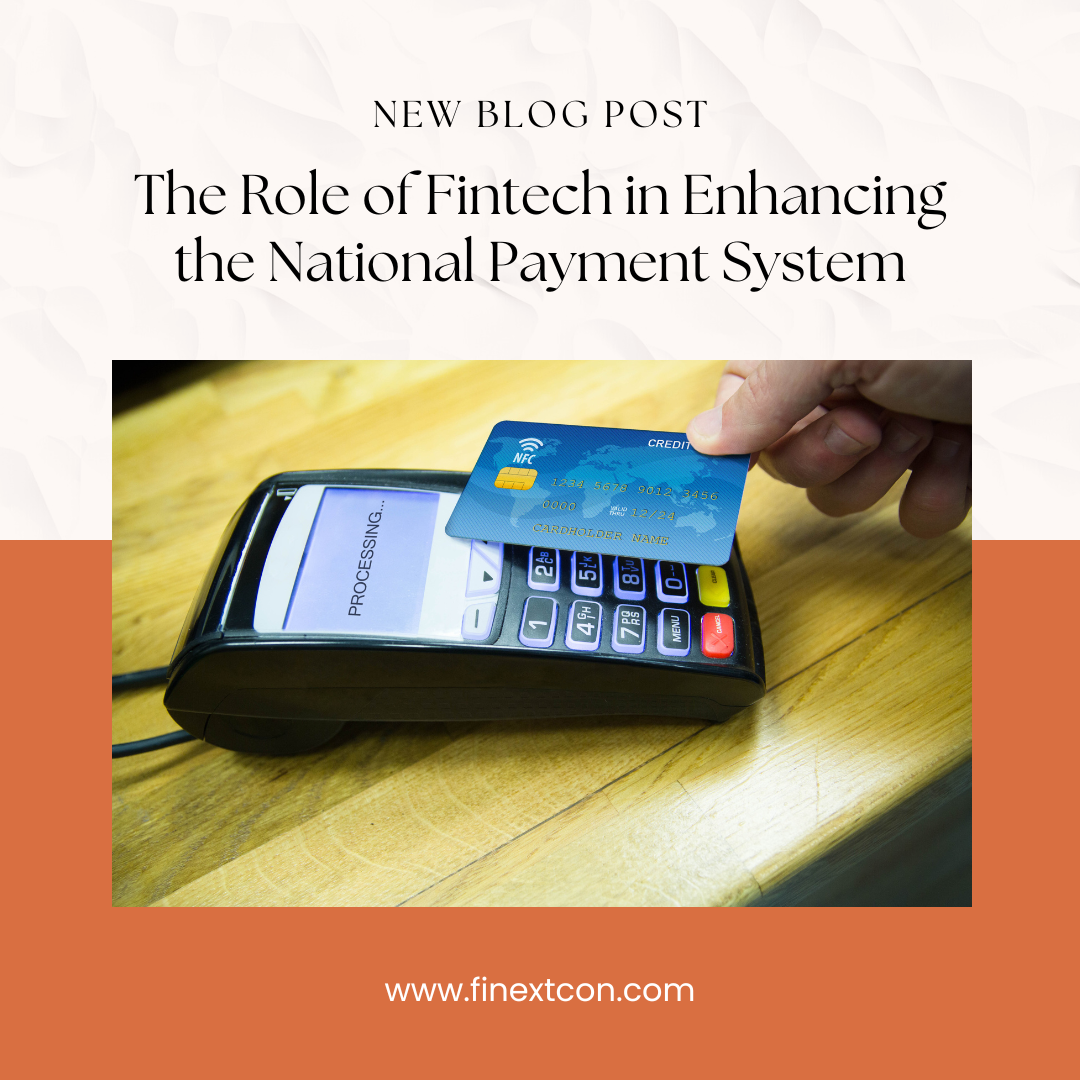The Evolution of Fintech Partnerships: From Competition to Collaboration
Tag: Fintech conference
Top 10 Payment Gateways in Saudi Arabia: A Comprehensive Guide
Top 10 Payment Gateways in Saudi Arabia: A Comprehensive Guide
Fintech in 2025: Emerging Trends to Watch
Fintech in 2025: Emerging Trends to Watch
The Role of Fintech in Enhancing the National Payment System
In the modern financial landscape, the advent of financial technology (fintech) has profoundly impacted the way we conduct transactions, manage finances, and perceive money. One of the most significant areas where fintech has brought about a revolutionary change is the national payment system. This blog delves into the crucial role fintech plays in enhancing the national payment system, its benefits, challenges, and the future outlook. Understanding the National Payment System The national payment system (NPS) encompasses the set of instruments, procedures, and rules used to transfer funds between entities within a country. It is a crucial component of the financial infrastructure, ensuring the efficient and secure movement of money. A robust NPS is essential for economic stability, facilitating trade, investment, and overall economic growth. The Rise of Fintech Fintech, a fusion of finance and technology, leverages innovations like blockchain, artificial intelligence, and big data to offer enhanced financial services. Its rise has disrupted traditional banking and payment systems, introducing new ways of conducting transactions that are faster, more secure, and more inclusive. Enhancing Efficiency and Speed One of the most notable contributions of fintech to the NPS is the significant improvement in efficiency and speed. Traditional payment methods often involve multiple intermediaries, leading to delays and higher costs. Fintech solutions, such as peer-to-peer (P2P) payment platforms and digital wallets, streamline the process, reducing the time taken for transactions to mere seconds. For instance, real-time payment systems like the Unified Payments Interface (UPI) in India have revolutionized how money is transferred, allowing instant bank-to-bank transfers 24/7. This not only enhances user convenience but also boosts economic activities by ensuring funds are available immediately for further transactions. Promoting Financial Inclusion Fintech has played a pivotal role in promoting financial inclusion, particularly in developing countries. Traditional banking systems often exclude large segments of the population, especially those in rural areas or with low incomes. Fintech bridges this gap by providing accessible and affordable financial services through mobile phones and the internet. Mobile money services like M-Pesa in Kenya have brought millions into the financial system, enabling them to save, borrow, and transfer money without needing a bank account. By integrating more people into the formal financial system, fintech strengthens the NPS and contributes to overall economic growth. Enhancing Security and Transparency Security and transparency are paramount in any payment system. Fintech innovations have significantly bolstered these aspects through technologies like blockchain and biometrics. Blockchain, for example, offers a decentralized ledger system that ensures transparency and reduces the risk of fraud. Biometric authentication methods, such as fingerprint and facial recognition, add an extra layer of security to financial transactions, minimizing the risk of unauthorized access. These advancements not only protect users but also enhance trust in the NPS, encouraging more people to adopt digital payment methods. Challenges and Considerations Despite its numerous benefits, the integration of fintech into the national payment system is not without challenges. Regulatory frameworks need to evolve to keep pace with technological advancements, ensuring that fintech innovations do not compromise… Continue Reading The Role of Fintech in Enhancing the National Payment System
The Role of Artificial Intelligence in Modern Tax Administration
Role of Artificial Intelligence in Modern Tax Administration
How Flutterwave Supports Financial Inclusion through Money Transfers
In today’s interconnected world, financial inclusion remains a critical issue, especially in developing regions where access to financial services is limited. Flutterwave, a leading payment technology company in Africa, is making significant strides in bridging this gap. By leveraging innovative solutions and a robust platform, Flutterwave is empowering individuals and businesses through seamless money transfers. This blog explores how Flutterwave supports financial inclusion and transforms lives across the continent. Understanding Financial Inclusion Financial inclusion refers to the availability and accessibility of financial services to all individuals, regardless of their socio-economic status. It encompasses a range of services, including banking, payments, savings, credit, and insurance. Financial inclusion is essential for economic development, poverty reduction, and overall societal well-being. Flutterwave’s Role in Promoting Financial Inclusion Flutterwave has emerged as a pivotal player in the financial technology sector, particularly in Africa. Here’s how the company is driving financial inclusion through money transfers: Success Stories The impact of Flutterwave’s efforts is evident in the numerous success stories from individuals and businesses across Africa. For instance, a small business owner in Nigeria can now receive payments from international customers seamlessly, thanks to Flutterwave’s payment gateway. Similarly, a student in Kenya can receive remittances from family abroad quickly and affordably, helping them focus on their studies without financial stress. The Road Ahead While significant progress has been made, the journey towards complete financial inclusion is ongoing. Flutterwave continues to innovate and expand its services to reach more people and address emerging challenges. The company’s commitment to financial inclusion is a testament to its vision of a world where everyone has access to the financial services they need to thrive. Conclusion Flutterwave’s dedication to financial inclusion through money transfers is transforming lives and fostering economic growth across Africa. By providing accessible, affordable, and innovative financial solutions, Flutterwave is empowering individuals and businesses to participate fully in the economy. As the company continues to expand and innovate, the future of financial inclusion in Africa looks promising.
Investing in Cryptocurrency: Risks and Rewards
Cryptocurrency has become one of the most talked-about investment opportunities of the 21st century. Since the introduction of Bitcoin in 2009, the crypto market has grown exponentially, capturing the interest of investors worldwide. But as with any investment, it’s crucial to understand both the potential rewards and the inherent risks. In this blog, we will explore the key aspects of investing in cryptocurrency, providing a balanced view to help you make informed decisions. The Rewards of Investing in Cryptocurrency 1. High Returns Potential One of the most enticing aspects of cryptocurrency investment is the potential for high returns. Early adopters of Bitcoin, for example, have seen astronomical gains. Cryptocurrencies like Ethereum, Binance Coin, and Solana have also provided significant returns for investors. The volatile nature of the market can lead to substantial profits in a relatively short period. 2. Diversification Cryptocurrencies offer a new asset class that can diversify an investment portfolio. By including digital assets alongside traditional investments like stocks, bonds, and real estate, investors can reduce their overall risk. Diversification helps in spreading risk and can improve the potential for returns. 3. Decentralization and Innovation The decentralized nature of cryptocurrencies means they are not controlled by any single entity, such as a government or financial institution. This decentralization can provide a hedge against inflation and currency devaluation. Additionally, the underlying blockchain technology is revolutionizing various industries, from finance to supply chain management, presenting new investment opportunities. 4. Accessibility and Liquidity Cryptocurrencies are highly accessible. Anyone with an internet connection can participate in the market. Unlike traditional stock markets, the crypto market operates 24/7, providing liquidity and the ability to trade at any time. The Risks of Investing in Cryptocurrency 1. Volatility The cryptocurrency market is notoriously volatile. Prices can fluctuate wildly within short periods, leading to significant gains or losses. For instance, Bitcoin has experienced drops of over 50% in a matter of weeks. This volatility can be daunting for investors who are not prepared for rapid changes in their portfolio’s value. 2. Regulatory Uncertainty Cryptocurrencies exist in a regulatory grey area in many countries. Governments and regulatory bodies are still figuring out how to handle digital assets. Future regulations could impact the market significantly, potentially leading to restrictions, higher taxes, or even bans in some jurisdictions. 3. Security Risks While blockchain technology is inherently secure, the platforms and exchanges used to trade cryptocurrencies are not immune to hacks and cyber-attacks. There have been numerous instances of exchanges being hacked and investors losing their funds. It is essential to use reputable exchanges and secure your digital assets in wallets. 4. Market Manipulation and Fraud The relatively unregulated nature of the crypto market makes it susceptible to market manipulation and fraud. Pump-and-dump schemes, where the price of a cryptocurrency is artificially inflated before being sold off, are not uncommon. Investors need to conduct thorough research and be cautious of too-good-to-be-true opportunities. Tips for Mitigating Risks Conclusion Investing in cryptocurrency can offer substantial rewards but comes with significant risks. By… Continue Reading Investing in Cryptocurrency: Risks and Rewards
Fintech Partnerships: How Collaboration is Driving Innovation in Retail Banking
The financial landscape is undergoing a radical transformation, driven largely by the synergy between traditional retail banks and fintech companies. This collaboration is not just a trend; it is a fundamental shift in how financial services are delivered, aimed at enhancing customer experience, increasing operational efficiency, and fostering innovation. The Rise of Fintech in Retail Banking Fintech, short for financial technology, encompasses a wide range of applications, from mobile banking apps to blockchain technology. These innovations have introduced unprecedented levels of convenience, speed, and accessibility to financial services. Retail banks, recognizing the disruptive potential of fintech, have increasingly sought partnerships to stay competitive and relevant in an evolving market. Benefits of Fintech-Bank Collaborations Examples of Successful Fintech-Bank Partnerships Challenges and Considerations While fintech partnerships offer numerous benefits, they also present challenges. Regulatory compliance, data security, and cultural differences between traditional banks and fintech startups can pose significant hurdles. Successful collaborations require clear communication, aligned goals, and a mutual understanding of each partner’s strengths and limitations. The Future of Fintech-Bank Collaborations The future of retail banking will undoubtedly be shaped by continued collaboration between banks and fintech companies. As technology evolves, we can expect even more innovative solutions that will redefine banking. For instance, the rise of decentralized finance (DeFi) and blockchain technology could further disrupt traditional banking models, prompting even deeper collaborations. In conclusion, fintech partnerships are driving a wave of innovation in retail banking. By leveraging each other’s strengths, banks and fintech companies can create more efficient, inclusive, and customer-centric financial services. This collaboration is not just beneficial; it is essential for the future of banking.







